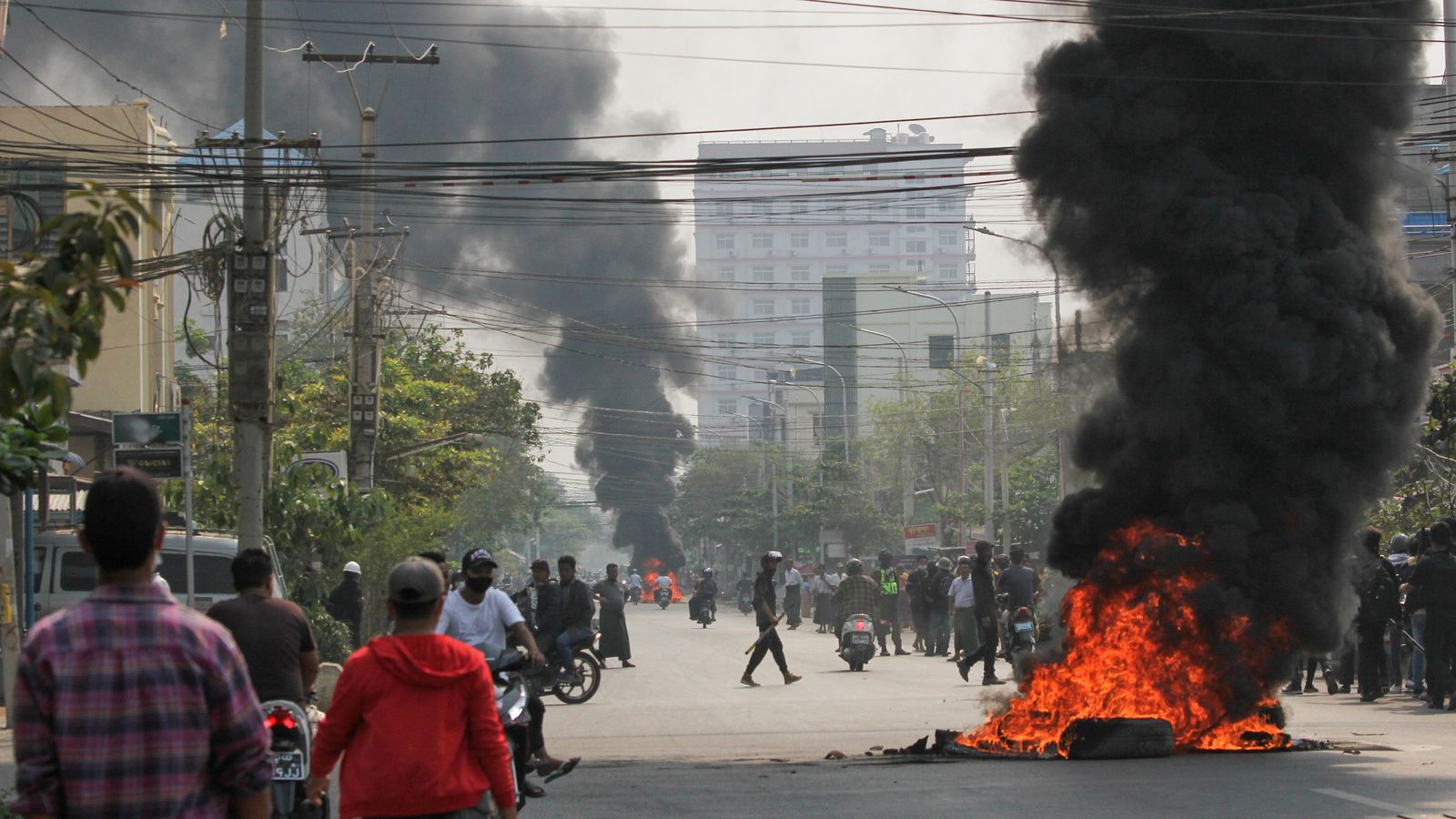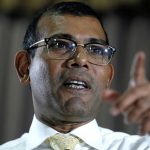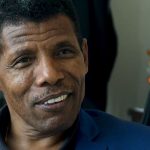At least 50 people have been killed across Myanmar after security forces opened fire on protesters, according to local media reports.
The deadly tally is said to include 13 in the country’s second-biggest city, Mandalay, nine in the nearby region of Sagaing
and seven in the commercial capital Yangon.
The shootings came as a rebel leader told Sky News that Myanmar’s armed ethnic groups will not stand by and do nothing if the military continued to kill demonstrators.
People had taken to the streets again to protest against the 1 February coup, in defiance of a warning that they could be shot “in the head and back”, as the junta celebrated Armed Forces Day.
Dr Sasa, the disbanded democratic parliament’s special envoy to the UN, said: “Today is a day of shame for the armed forces.”
After leading a military parade in the capital Naypyitaw, the junta’s leader General Min Aung Hlaing repeated that his regime would hold “a free and fair election” and hand over power afterwards, but gave no timetable.
In a live broadcast on state TV, he said: “The army seeks to join hands with the entire nation to safeguard democracy.
“Violent acts that affect stability and security in order to make demands are inappropriate.”
The number of people killed in the unrest since the overthrow of Aung San Suu Kyi’s elected government now stands at around 380.
‘We will not stand by’: Ethnic rebel chief’s warning to Myanmar junta
By Siobhan Robbins, South East Asia correspondent
An ethnic rebel leader has warned Myanmar’s military his soldiers will strike back if security forces continue to kill civilians.
Lieutenant General Yawd Serk, a political and military commander in the country’s Shan State, told Sky News: “The ethnic armed forces are watching closely whether the military is going to continue to kill civilians.
“If the Burmese army is going to continue to use their weapons and kill peaceful protesters, the ethnic groups are not going to sit back and do nothing. There could be big fighting.”
“It’s a warning,” he added.
“If they continue to kill peaceful protesters, we will not stand by.”
Lt Gen Yawd Serk, the chairman of the Restoration Council of Shan State (RCSS), is the commander of one of more than two dozen ethnic armed groups that operate in Myanmar’s borderlands.
As the crackdown on protesters intensifies, one source claimed some people have begun approaching some of the rebel groups for combat training so they can learn to fight back.
Asked if Shan forces would train civilians, Lt Gen Yawd Serk said: “We stand together with the people and if they come and seek assistance from us, we are ready to provide it… if they want to be trained, we have the training.”
However, he believes evidence from current protests suggests people want the demonstrations to remain as peaceful as possible, so were only arming themselves with basic protection like slingshots.
“They are trying to defend themselves, not [trying] to go to war,” he said.
He also rejected the idea that his soldiers would travel to the big cities to fight against the junta.
“If there was a federal army for example, the Shan armed forces would take care of the Shan State.
“It does mean, for example, the armed forces will go into Mandalay or Yangon,” he said.
Describing the leader of the junta, General Min Aung Hlaing, as a “selfish general” who “does not care about other people”, the Shan State chief expressed concern that Myanmar could soon face a humanitarian crisis if the brutal violence continues.
More than 8,000 ethnic Karen people have fled their homes to escape an offensive by Myanmar’s military.
Hundreds have also taken shelter in Shan State which borders Thailand.
“We are very concerned about the situation because the military is killing peaceful protestors, so they do not value the lives of civilians.
“Another concern is because civilians have to flee into the jungle… they might face difficulties with shelter or food,” he said.
Lt Gen Yawd Serk urged foreign countries not to support the military government – warning the Tatmadaw would not stop the killings.
He said: “It is very difficult for the Burmese army to compromise or even give in because they have killed civilians and they know because of their actions they could be charged and have to go to the court so they know that they cannot give in.
“They are going to rely on their arms to kill civilians in order to maintain power.”






















